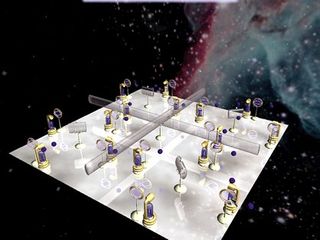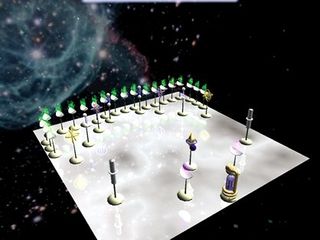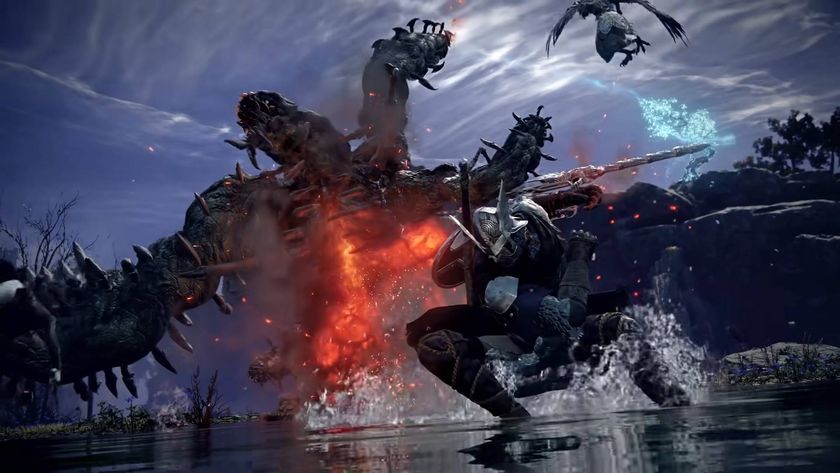12DOVE Verdict
Pros
- +
Manages to get under your skin
- +
Requires thought and planning
- +
Requires skill
Cons
- -
Not as deep as it wants to be
- -
Requires patience and luck
- -
Requires money
Why you can trust 12DOVE
Chaos Theory is another of the smaller games to get boosted into the public eye by Steam. We’ve had Gumboy, Gish, Audiosurf and the slightly unjustifiable Ninja Reflex, and now it’s Chaos Theory’s turn to look slightly awkward rubbing sholders with Call of Duty 4 and Chuzzle Deluxe. The idea is to get particles of one colour to orbit their corresponding Collector nucleus. You do this by propelling the particles towards them at the required minimum velocity. Your tools are charged poles which you can polarise to attract and repel particles, gathering posts to fire them from, and rotating deflective barriers to bounce the balls in the right direction.

This all sounds like classic casual action, but BlurredVision make the brave move of alienating bored mothers with clinical grey levels, odd attempts at art deco elegance, and overtly scientific action. This nerdy edge is perfectly acceptable tous – in fact it’s nice not to have a cutesy chipmunk telling us we're awesome every timewe complete a level for once – but we can’t help but think that avoiding the approachable colour schemes of the genre will only hurt the game’s sales. That said, Steamworks achievements add the occasional and pleasant surprise when they appear in the bottom-right corner of the screen.

Where Chaos Theory struggles is the consistency of its levels. There’s a good balance of skill, puzzles, and trial and error, but for every level that gives you the thrill of solving a puzzle – or “buzzle”, as we professionals call it – there’s one annoying level in which you’re just clicking without skill or thought. Persistence pays off though, because Chaos Theory pulls through a level 30s lull (you have to complete levels to progress, although you have a limited power to skip them – level skips are earned for completing sets of levels) to provide some genuinely entertaining and lobe-flexing levels.
Later items, such as the gravitron and the duplicator are far more entertaining than the standard bouncy walls, and should have been included earlier. Chaos Theory is a slightly alienating, yet eventually rewarding game that lets you create your own levels. While it’s pitched perfectly atten bucks, you might get the nagging feeling that you’ve played similar stuff in the past for free.
Jul 28, 2008
More info
| Genre | Puzzle |
| Description | The rare casual game that requires some real skill and thought. Unfortunately, it feels a little bit like something we've played before for free. |
| Platform | "PC" |
| Release date | 1 January 1970 (US), 1 January 1970 (UK) |

First look at Your Friendly Neighborhood Spider-Man season 2 reveals a glimpse at both Gwen Stacy and Spider-Gwen as fan-favorite character is confirmed to be joining the cast

RPGs collide as Kingdom Come: Deliverance 2 player commissions Baldur's Gate 3 mod to play as Henry: "He’s just a Christian boy from medieval Bohemia and now there’s demons and fireballs"

After 14 years, Elden Ring Nightreign brings back an iconic Dark Souls boss and gives him some frankly hilarious new tricks
Most Popular



